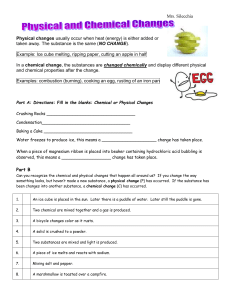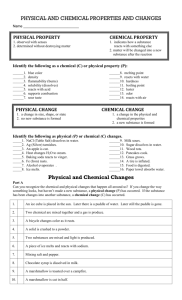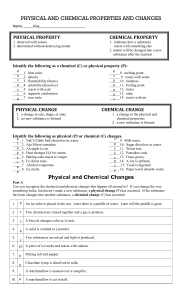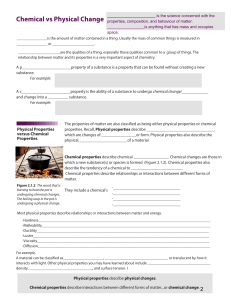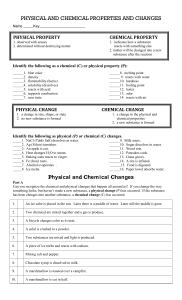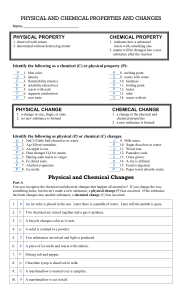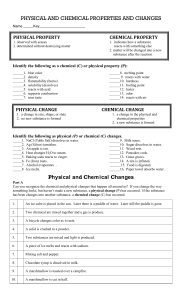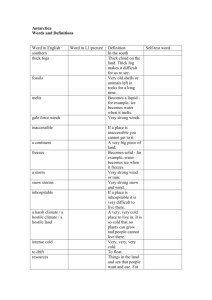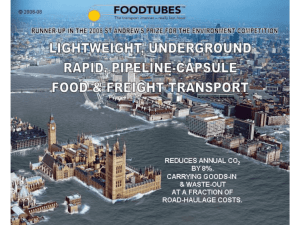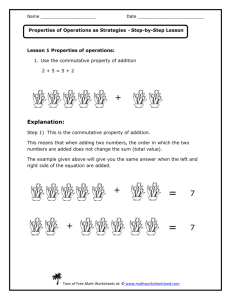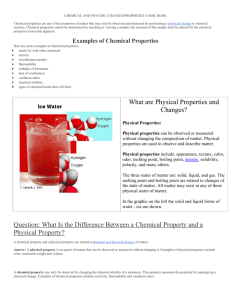Physical & Chemical Changes Worksheet
advertisement
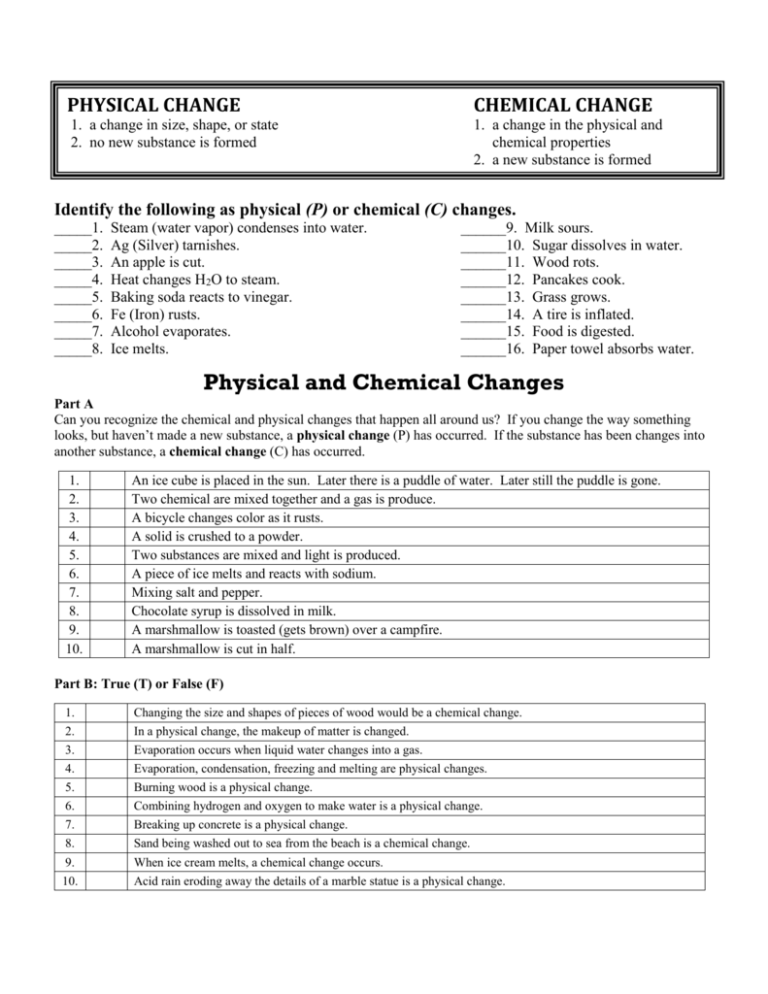
PHYSICAL CHANGE CHEMICAL CHANGE 1. a change in size, shape, or state 2. no new substance is formed 1. a change in the physical and chemical properties 2. a new substance is formed Identify the following as physical (P) or chemical (C) changes. _____1. _____2. _____3. _____4. _____5. _____6. _____7. _____8. Steam (water vapor) condenses into water. Ag (Silver) tarnishes. An apple is cut. Heat changes H2O to steam. Baking soda reacts to vinegar. Fe (Iron) rusts. Alcohol evaporates. Ice melts. ______9. Milk sours. ______10. Sugar dissolves in water. ______11. Wood rots. ______12. Pancakes cook. ______13. Grass grows. ______14. A tire is inflated. ______15. Food is digested. ______16. Paper towel absorbs water. Physical and Chemical Changes Part A Can you recognize the chemical and physical changes that happen all around us? If you change the way something looks, but haven’t made a new substance, a physical change (P) has occurred. If the substance has been changes into another substance, a chemical change (C) has occurred. 1. 2. 3. 4. 5. 6. 7. 8. 9. 10. An ice cube is placed in the sun. Later there is a puddle of water. Later still the puddle is gone. Two chemical are mixed together and a gas is produce. A bicycle changes color as it rusts. A solid is crushed to a powder. Two substances are mixed and light is produced. A piece of ice melts and reacts with sodium. Mixing salt and pepper. Chocolate syrup is dissolved in milk. A marshmallow is toasted (gets brown) over a campfire. A marshmallow is cut in half. Part B: True (T) or False (F) 1. 2. Changing the size and shapes of pieces of wood would be a chemical change. In a physical change, the makeup of matter is changed. 3. 4. 5. 6. 7. 8. Evaporation occurs when liquid water changes into a gas. Evaporation, condensation, freezing and melting are physical changes. Burning wood is a physical change. Combining hydrogen and oxygen to make water is a physical change. Breaking up concrete is a physical change. Sand being washed out to sea from the beach is a chemical change. 9. 10. When ice cream melts, a chemical change occurs. Acid rain eroding away the details of a marble statue is a physical change. Part C Read each scenario. Decide whether a physical or chemical change has occurred and give evidence for your decision. The first one has been done for you to use as an example. Scenario Physical or Chemical Change? 1. Umm! A student removes a loaf of bread hot from the oven. The student cuts a slice off the loaf and spreads butter on it. Physical 2. Your friend decides to toast a piece of bread, but leaves it in the toaster too long. The bread is black and the kitchen if full of smoke. 3. You forgot to dry the bread knife when you washed it and reddish brown spots appeared on it. 4. You blow dry your wet hair. 5. In baking biscuits and other quick breads, the baking powder reacts to release carbon dioxide bubbles. The carbon dioxide bubbles cause the dough to rise. 6. You take out your best silver spoons and notice that they are very dull and have some black spots. 7. A straight piece of wire is coiled to form a spring. 8. Food color is dropped into water to give it color. 9. Chewing food to break it down into smaller particles represents a _________ change, but the changing of starch into sugars by enzymes in the digestive system represents a ___________change. 10. In a fireworks show, the fireworks explode giving off heat and light. Evidence… No change in substances. No unexpected color change, temperature change or gas given off.
